- 571
- 571
- 574
- 575
- 577
- 589
- 594
- 594
- 605
- 610
- 610
- 613
- 614
- 615
- 616
- 620
- 620
- 621
- 621
- 622
- 622
- 622
- 622
- 622
- 622
- 622
- 622
- 623
- 623
- 623
- 624
- 624
- 624
- 624
- 624
- 624
- 624
- 624
- 624
- 625
- 625
- 625
- 626
- 627
- 628
- 628
- 628
- 628
- 628
- 628
- 629
- 630
- 630
- 630
- 630
- 630
- 631
- 632
- 632
- 632
-

571
Our dear Prophet, the most honorable human being ever, was born. He was given the name Muhammad.
-

571
Our Prophet was given to a wet-nurse, Halima. She was enriched and rejoiced by his presence.
-

574
Our Prophet thrived with Halima’s milk. He returned to his mother Amina’s lap as a well-grown child.
-
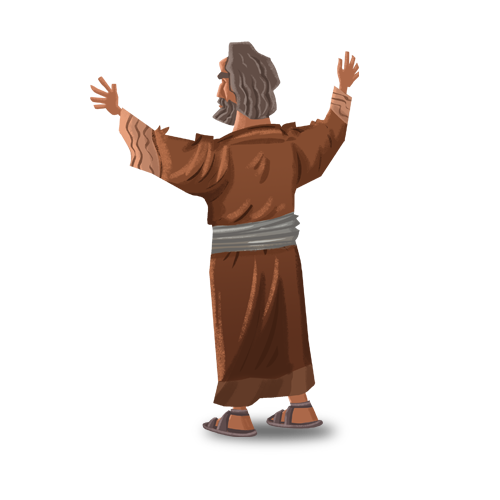
575
When his mother passed away, our Prophet went to live with His grandfather who embraced him with open arms.
-
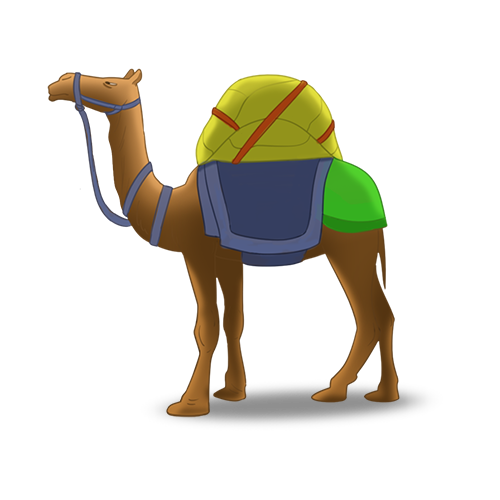
577
Upon his grandfather’s death, our Prophet began to live with his uncle. They went on long trips together. His uncle taught our Prophet about trade.
-
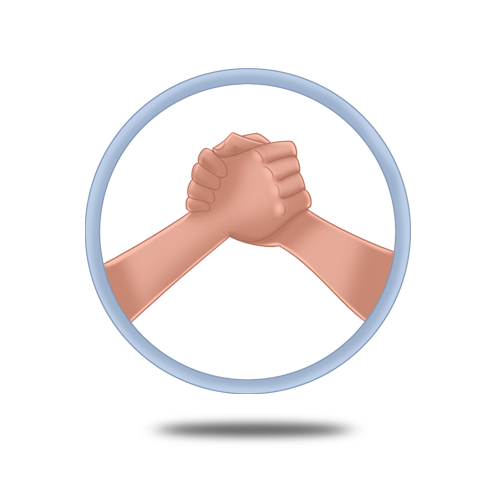
589
Our Prophet was together with the good people of Mecca. He joined the Alliance of the Virtuous (Hilf al-Fudul).
-
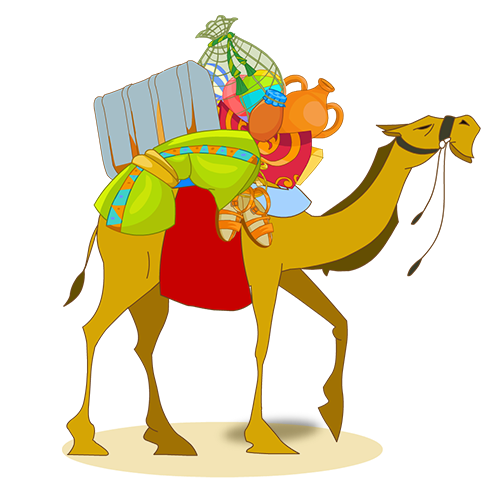
594
Our Prophet was also a successful trader. He took a large caravan to the city of Bosra. Earning a living with this profession, he fulfilled its requirements in the best way.
-
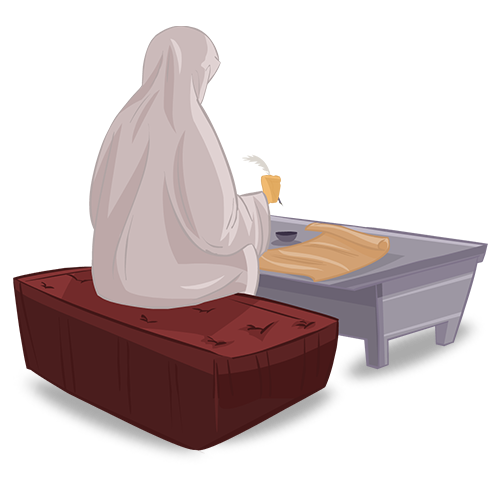
594
Our Prophet married Khadijah, a beautiful and noble woman of Mecca. The first person to believe in him when Muhammad (pbuh) became a Prophet, Khadijah always loved him. She confronted difficulties side-by-side with him.
-

605
The Kaaba was a sacred house even before Islam. Hajar al-Aswad, meaning the black stone, was an untouchable symbol of that house. Once, during repairs on the sacred house, the Meccan tribes were disputing with one another about who would put the stone in its place. When they were about to come to conflict on this matter, our Prophet walked in and spread a cloth on the ground. He put the sacred stone in the middle. Holding the four corners of the cloth, the tribes carried the Hajar al-Aswad all together. Our Prophet then placed it in its place. Under the leadership of the Prophet, the problem was solved without conflict.
-
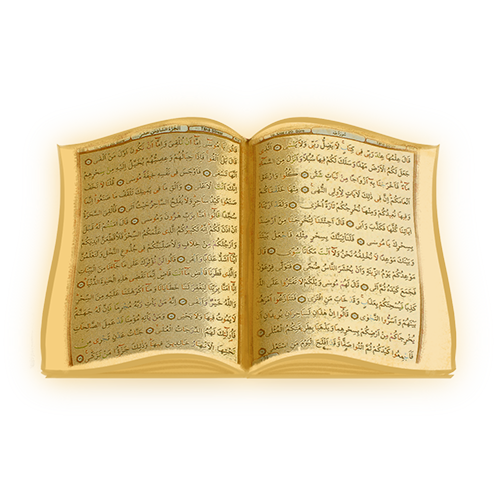
610
While he was in the cave of Hira, where he sometimes used to go, our Prophet met an angel. God gave him some verses through the angel Gabriel. These verses were the first words of the Holy Quran which guided him and all of mankind.
-

610
The first verses of the Holy Quran told first our Prophet and then all of humanity to “Read.” “Read! In the name of your Lord who created, Who created man from a clinging substance: Read! And your Lord is the most Generous. He who taught (the use of) the pen, taught man that which he knew not.” Sura Alaq, verses 1-5
-

613
God commanded the Prophet to inform those close to him of the truth He taught. He told him to speak the truth clearly. Truth should not be hidden. And among the beautiful persons who believed in our Prophet was his 10-year-old cousin, Ali.
-

614
Difficult days awaited those who believed in our Prophet. For unbelievers did not leave them alone, they commited many hostile acts against them.
-
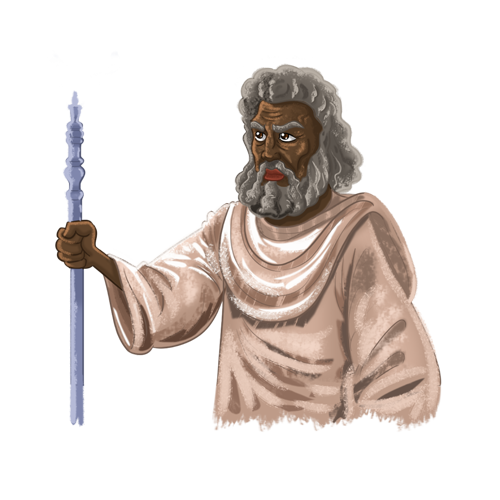
615
Unable to live comfortably in the city of Mecca, the believers made their first Migration to Abyssinia, with the permission of the Prophet.
-

616
Every city has brave warriors. Mecca’s warriors were Hamza and Omar. They were very strong. After becoming Muslim, they became even more courageous with the faith in their hearts. They turned into the fearless heroes of Muslims.
-

620
Abu Talib was not a fatherly friend, but an uncle who acted as a father to our Prophet. When he died, the Prophet’s strongest support was gone. Soon afterwards, his beloved wife Khadija also died. Her death meant the loss of his trusting lifetime mate. That year was filled with grief from the beginning to the end. That is why Muslims called this the “Year of Sorrow.”
-

620
Our Prophet explained Islam not only to Meccans but also to pilgrims coming from surrounding towns. A group from Yathrib whole-heartedly believed in our Prophet. (1st Aqaba Pledge)
-

621
Those were very difficult days. All the doors in the city of Mecca were closing in the faces of the believers. At such a time, something extraordinary happened. Our Prophet made a miraculous “Night Journey.” One night, he was suddenly taken from the Masjid al-Haram in Mecca to the Masjid al-Aqsa in Jerusalem. There, he met with former Prophets. Then he was taken to the highest point possible in the heavens. He had a very special meeting with God. This incident was called the “Miraj”. God gave Muslims “salah” (daily prayers) as a gift. Salah is like a ladder rising to the heavens for those who believe.
-
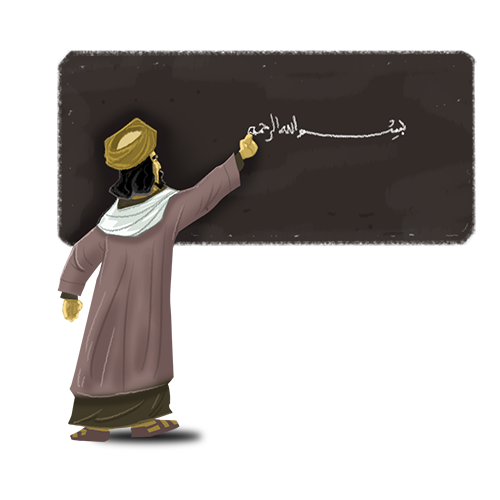
621
Our Prophet sent Musab as a teacher for Muslims in Yathrib. Musab, a kind, knowledgeable and very polite young man, became the first teacher of Islam. He enlightened people about how to practice this religion correctly.
-

622
The people of Medina (Yathrib) quickly embraced the religion of Islam. And as a large group, almost all the representatives of the city accepted Islam. (2nd Aqaba Pledge)
-

622
Medina embraced those taking refuge in it like a caring mother. Muslims began to migrate to Medina in order to practice their religion more easily.
-

622
Idol-worshippers thought they could destroy the belief in the One God by killing our Prophet who had remained alone in Mecca. So in an evil assembly, they decided to kill him.
-
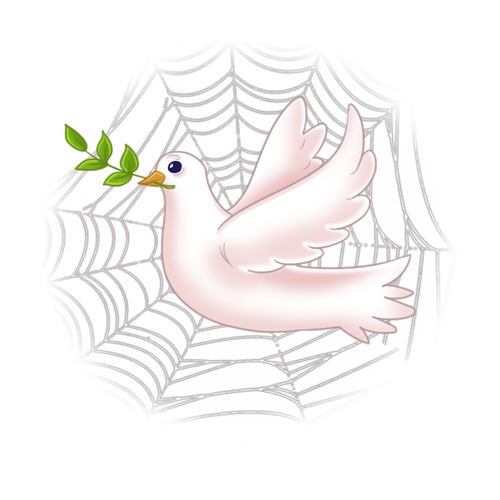
622
God saved our Prophet from the traps of the enemies. He got saved through reciting verses from the Quran. Then he set off to Medina with his friend, Abu Bakr. They took refuge in the Cave Thawr for a few days.
-
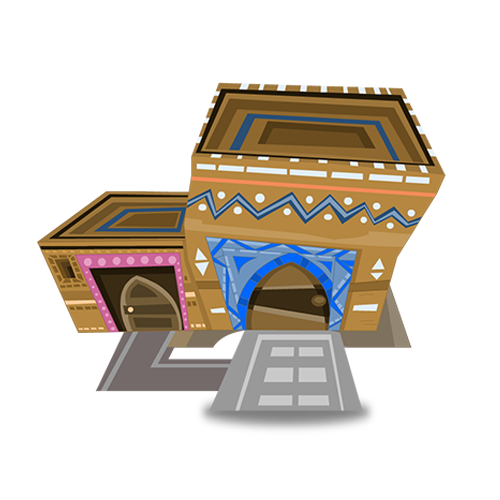
622
When our Prophet reached Quba on the way to Medina, a small masjid was built there.
-
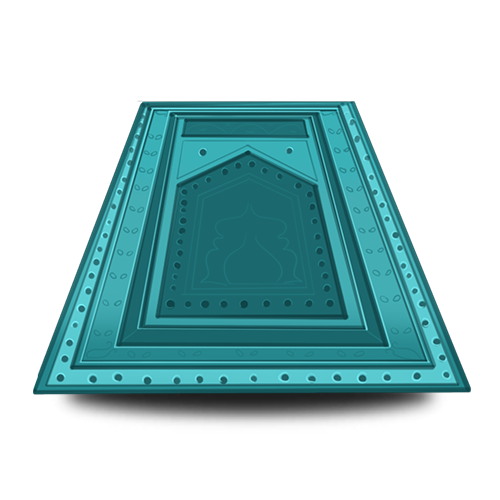
622
In this masjid near Medina, Friday prayer was performed for the first time as a group. Friday prayer represented unity and solidarity. It was to say, “Become a beautiful people all together.”
-
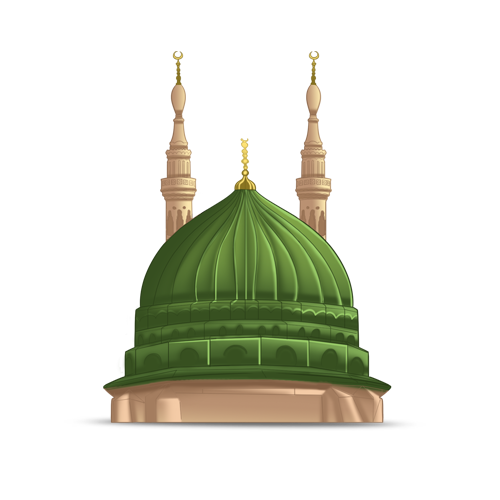
622
When our Prophet settled in Medina, a house for him and a masjid for all the Muslims were built. From that day on, the Prophet’s Masjid (Masjid an-Nabawi) became a meeting place for Muslims.
-
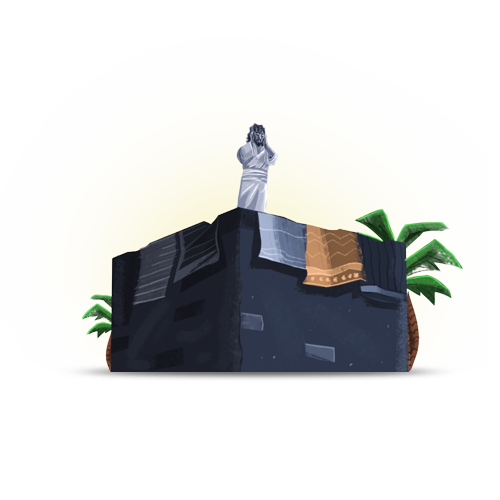
622
To call out to Muslims for prayer, they came up with the “adhan”. Whenever the adhan was called, Muslims ran to prayer as if God was calling them. Salah was the moment of meeting with God.
-
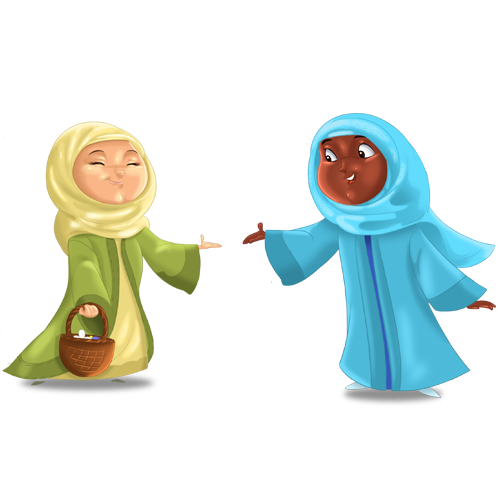
623
The people of Medina not only gave shelter to the Muslims coming from Mecca, they also opened their hearts to them. Thus, a rare brotherhood started between the locals of Medina (Ansar) and the migrants (Muhajir).
-

623
One part of our Prophet’s Masjid was turned into a school. Those who wanted to learn Islam better rushed there to become students of the Prophet.
-
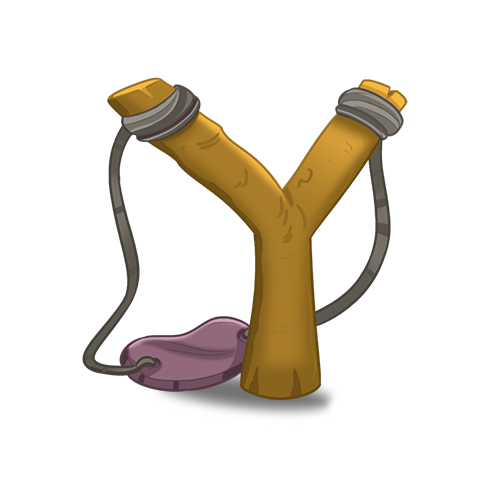
623
For the first time, Muslims had to fight with the idolaters who did not recognize their right to live. At Badr, thousands of angels came to the aid of the believers.
-
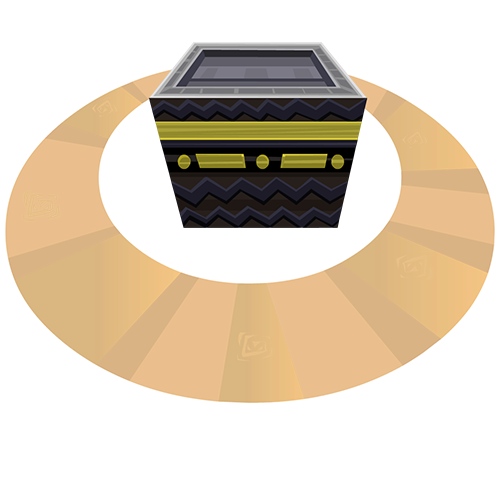
624
The direction where Muslims turn during their prayers is determined to be the Kaaba. It became Muslims’ “qibla”.
-

624
Fasting was made mandatory. Muslims would now fast throughout the month of Ramadan, they would learn to be patient against difficulties, and better understand the people who go through hunger.
-

624
One of our Prophet’s roses withered: His daughter Ruqiyya, who was married to Uthman, passed away.
-
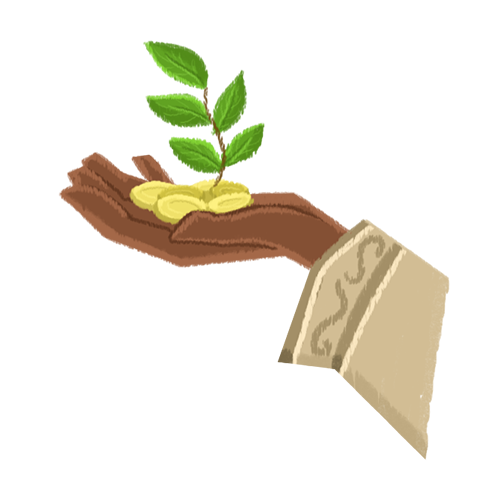
624
“Fitr” charity was made mandatory so that the poor could fulfil their needs and enjoy the holiday.
-

624
The believers were gifted a holiday after one month of fasting. Muslims gathered together at Eid and performed the Eid prayer all together.
-

624
Our Prophet got married to Aisha.
-

624
Ali, who was raised by our Prophet since his childhood, got married to our Prophet’s beloved daughter, Fatima.
-
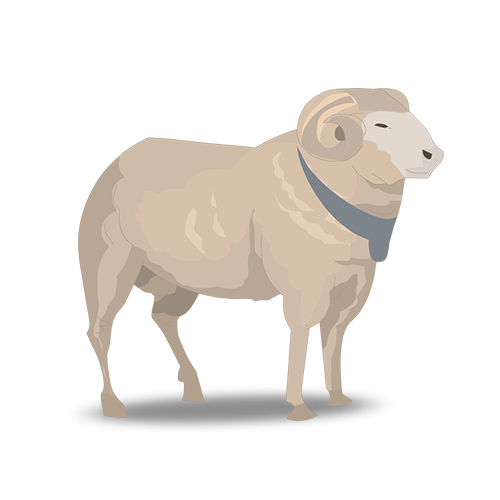
624
The Eid al-Adha was celebrated for the first time. “Zakat”, or the rich to help the poor, was commanded for the first time on this date.
-

624
Uthman got married to our Prophet’s daughter, Umm Kulthum.
-
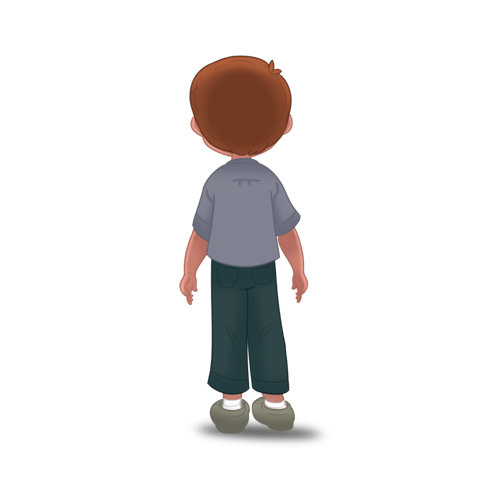
625
The first grandchild, Hasan was born. He was a lucky child to have our Prophet as his grandfather.
-
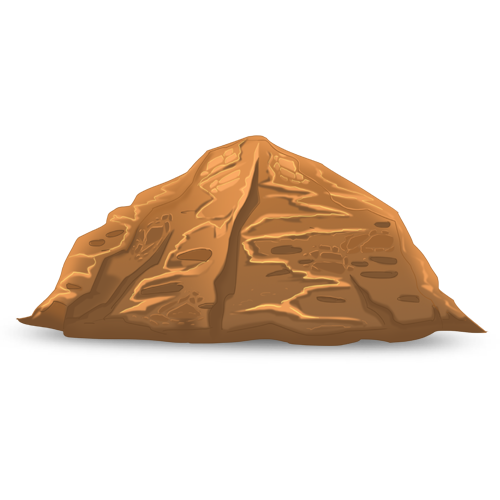
625
A battle took place in Uhud. Since Muslims did not keep their promise to our Prophet, they lost. With this battle, Muslims learned the importance of obedience.
-

625
Alcohol, the key to all the evils, was prohibited.
-
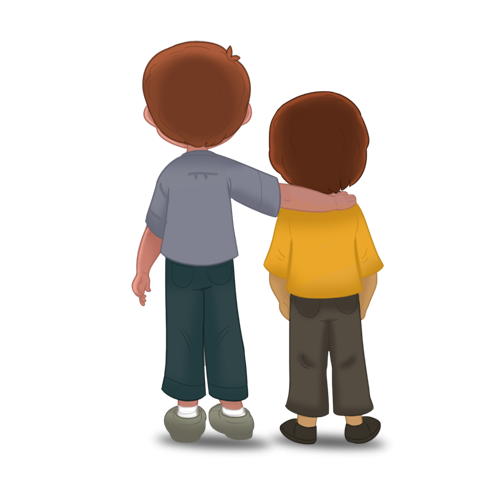
626
The second grandchild was born: Hussain. His grandfather was our Prophet.
-

627
To stop enemies attacking Medina, Muslims dug trenches all around the city. This baffled the idol-worshippers. They were not able to pass through the trenches and harm the Muslims.
-
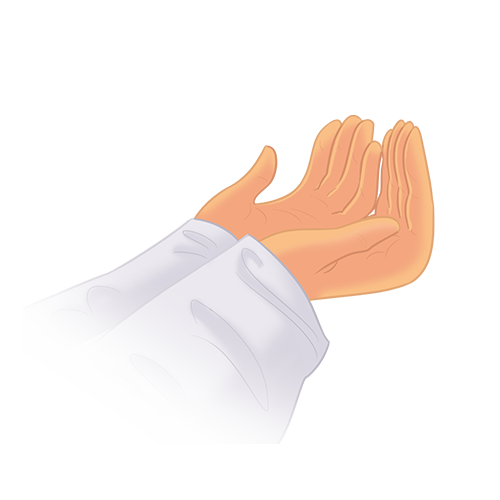
628
There was drought in Medina. Our Prophet and his companions prayed to God for rain to fall.
-

628
The sacred house, Kaaba was visited at a time other than the Hajj. This visit was called “Umra”. Muslims fulfilled their longing for the Kaaba.
-
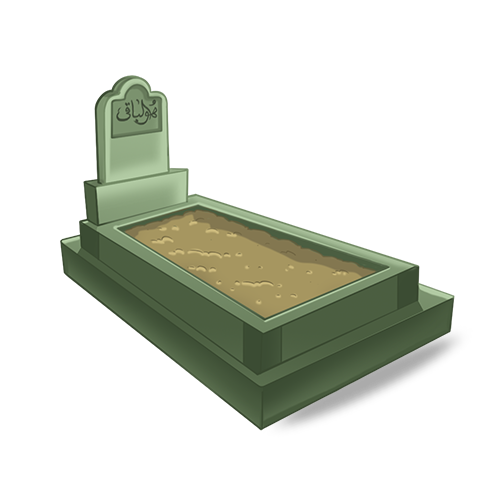
628
Our Prophet visited his dear mother’s grave at Abwa.
-
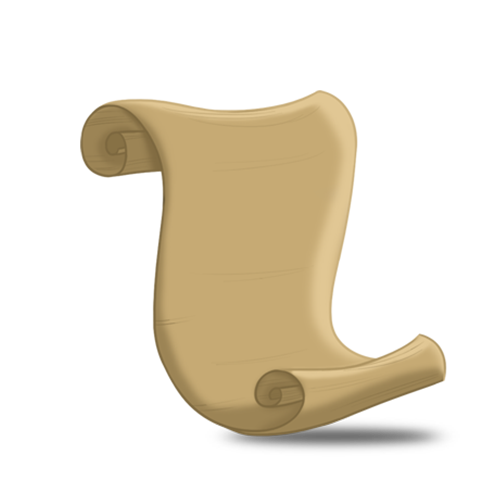
628
A significant agreement was signed with Meccans at Hudaybiya.
-

628
The sura al-Fath was revealed. Explaining help and success, this sura was a beautiful gift to Muslims.
-

628
Our Prophet wanted everyone to believe in God. He prayed for everyone to find the straight path. He wrote letters explaining Islam and sent them to surrounding countries with ambassadors. The ambassadors were like pigeons carrying good news.
-

629
One more of our Prophet’s roses wilted. His daughter Zainab passed away.
-

630
Our Prophet set out to reunite with Mecca, his hometown, which he had been forced to abandon. Mecca was conquered. Idols were cleared out from the Kaaba.
-
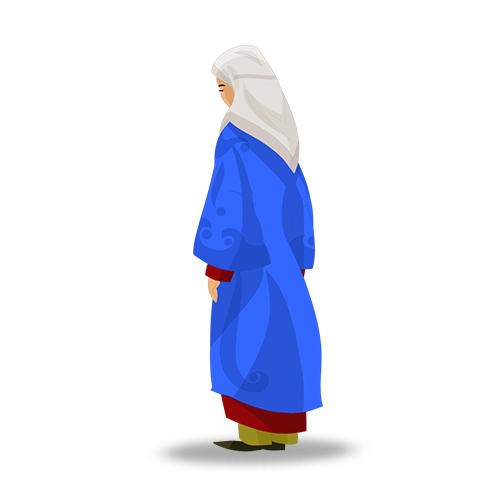
630
Our Prophet met with his milk-sister Shayma after a long time. They had been nourished by the same milk and they had played together in the sand dunes in the desert.
-

630
Tabuq: A victory where the believers were tried with difficulties and those who were patient won.
-
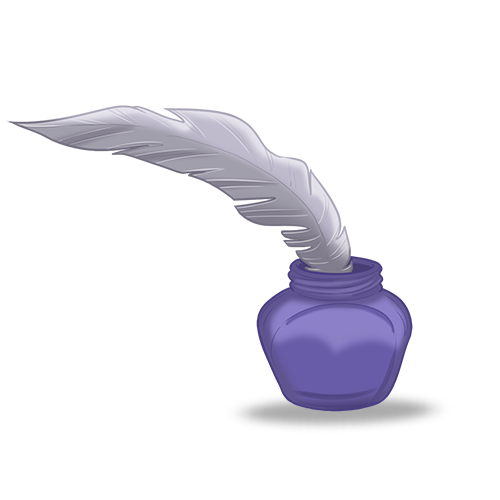
630
The famous poet Qab ibn Zuhayr, who lived during our Prophet’s time, became Muslim. Our Prophet took off his special garment and gave it to Qab as a gift. This way he showed how much he values arts and artists.
-

630
Mecca’s biggest idol Lat was smashed. He died in people’s hearts. He has never been alive anyway!
-

631
Our Prophet recited the Holy Quran twice from the beginning to the end during the month of Ramadan. Every verse of the Quran, which he recited together with the angel Gabriel, was correct. We too read the Quran together during Ramadan to keep the memory of mutual recitation alive.
-
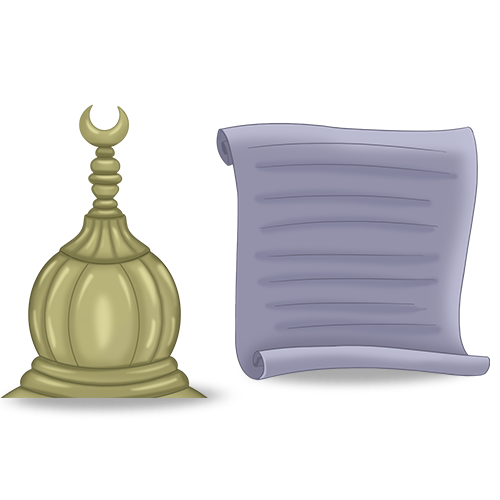
632
Our Prophet had grown old. During the pilgrimage season, he addressed the believers for the last time. He delivered a summary of what he had tirelessly told people until that time. He made extremely important reminders. This speech was called the “Farewell Address.”
-

632
Our Prophet performed his final pilgrimage. For the last time, he circumambulated the house of God, Kaaba, seven times with sincerity. This was called “tawaf.”
-

632
Our Prophet fell ill, and completing his lifetime journey like every human does, he passed away. Our Prophet was buried next to his masjid.

571
Tüm zamanların en değerli insanı sevgili Peygamberimiz doğdu. Adını Muhammed koydular.

571
Peygamberimiz sütanneye verildi. Sütannesi Halime Peygamberimiz ile sevindi. O’nun varlığı ile zenginleşti.

574
Peygamberimiz Halime annesinin sütüyle büyüdü, Amine annesinin kucağına, serpilmiş bir çocuk olarak döndü.

575
Annesi vefat edince Peygamberimiz dedesinin yanına götürüldü. Dedesi Peygamberimiz’e kollarını açtı.

577
Peygamberimiz dedesi de ölünce amcası Ebu Talib ile yaşamaya başladı. Onunla birlikte uzun yolculuklara çıktı. Amcası Peygamberimiz’e ticareti öğretiyordu.

589
Peygamberimiz Mekke şehrinin iyi insanlarıyla birlik oldu. Faziletli İnsanlar Cemiyeti’ne (Hilfü’l-Fudûl) katıldı.

594
Peygamberimiz aynı zamanda başarılı bir tüccardı. Suriye’deki Busra kentine büyük bir kervan götürdü. O yaptığı mesleğin gereklerini en güzel şekilde yerine getiriyordu.

594
Peygamberimiz Mekke’nin güzel ve asil kadını Hz. Hatice ile evlendi. Peygamber olduğunda kendisine ilk inanan bu şerefli hanım, Peygamberimiz’i her zaman sevdi. Zorluklara O’nunla birlikte göğüs gerdi.

605
Kabe İslam’dan önce de kutsal bir evdi. Siyah taş anlamındaki Hacerü’l Esved, o evin dokunulmaz sembolüydü. Bir keresinde, kutsal evin tamiri sırasında Mekke kabileleri Hacerü’l Esved’i yerine yerleştirmek için neredeyse birbirleriyle kavga edeceklerdi ki, Peygamberimiz geldi. Hırkasını yere serdi. Kutsal taşı üzerine koydu. Kabileler elbisenin dört bir yanından tutarak Hacerü’l Esved’i kaldırdılar. Peygamberimiz de taşı yerine koydu. Böylece sorun Peygamberimiz’in önderliğinde, hiçbir anlaşmazlığa düşülmeden çözülmüş oldu.

610
Peygamberimiz kırk yaşındayken, zaman zaman gittiği Hira Mağarası’nda bir melekle karşılaştı. Allah O’na Melek Cebrail ile bazı ayetler göndermişti. Bu ayetler, Peygamberimiz’e ve bütün insanlara yol gösterecek Kur’an’ın ilk sözleriydi.

610
Kur’an-ı Kerim’in ilk ayetleri önce Peygamberimiz’e, sonra tüm insalığa “Oku” diye seslendi. “Oku! Yaratan Rabb’in adıyla! O insanı bir embriyodan yaratmıştır. Oku! Rabb’in öyle cömert ki; kalemle yazmayı ve bilmediği herşeyi insana öğretti.” Kur’an-ı Kerim, Alak suresi 1-5. Ayetler

613
Allah, Peygamberimiz’e Cebrail’den (as) öğrendiklerini yakınlarına duyurmasını emretti. Gerçekleri korkmadan açıkça dile getirmesini söyledi. Gerçekler gizlenmemeliydi. Peygamberimiz’e inanan güzel insanlardan biri de 10 yaşındaki yeğeni Hz. Ali idi.

614
Peygamberimiz’e inanları zor günler bekliyordu. Çünkü Mekkeliler Peygamberimiz’in davetine karşı çıktılar. Ve O’na inanan Mü’iminlere çeşit çeşit kötülükler yaptılar.

615
Peygamberimiz Mekke’de rahatça ibadet edemeyen Müslümanların Habeşistan’a gitmelerine izin verdi.

616
Her şehrin birbirinden cesur yiğitleri vardır. Mekke’nin yiğitleri de Hamza ve Ömer’di. Çok güçlüydüler. Müslüman olunca kalplerindeki inanç onları daha da güçlü yaptı. Müslümanların korkusuz kahramanları oldular.

620
Ebu Talip baba yarısı değil, Peygamberimiz’e babalık yapan bir amcaydı. O öldüğünde Peygamberimiz’in en güçlü dayanağı yıkılmış oldu. Kısa bir süre sonra sevgili eşi Hz. Hatice de vefat etti. Hz. Hatice’nin vefatı, güven dolu hayat arkadaşını yitirmek demekti. O sene hep hüzünle doluydu. Bu sebeple Müslümanlar o seneyi “Hüzün Yılı” diye adlandırdılar.

620
Peygamberimiz sadece Mekkelilere değil çevre kentlerden gelen hacılara da İslam’ı anlatıyordu. Medine’den gelen bir grup insan Peygamberimiz’e yürekten inandı. (1. Akabe Biatı)

621
Günler çok sıkıntılı günlerdi. Mekke şehrinde bütün kapılar inananların yüzüne kapanıyordu. İşte böyle bir zamanda, olağanüstü bir şey oldu. Peygamberimiz mucizevi bir “Gece Yolculuğu” yaptı. Bir gece vakti ansızın Mekke’deki Mescid-i Haram’dan, Kudüs’teki Mescid-i Aksa’ya götürüldü. Orada, önceki ümmetlere gönderilen peygamberlerle bir araya geldi. Sonra gökyüzüne, varabileceği son noktaya kadar yükseltildi. Allah ile çok özel bir şekilde görüştü. Bu olaya “Miraç” adı verildi. Allah Müslümanlara namazı armağan etti. Namaz inananların göğe yükselen merdiveni gibiydi.

621
Peygamberimiz Medine’deki Müslümanlara Mus’ab’ı öğretmen olarak gönderdi. Güler yüzlü, bilgili ve çok kibar bir genç olan Mus’ab, İslamiyet’in ilk öğretmeni oldu. İnsanlara dini doğru ve güzel yaşamayı öğretti. O’nun sayesinde birçok kişi Müslüman oldu.

622
Medineliler İslam dinini kolayca benimsediler. Şehrin önemli isimleri gruplar halinde İslam’ı kabul etti. (2. Akabe biatı)

622
Medine şefkatli bir anne gibi kendisine sığınanları bağrına bastı. Müslümanlar dinlerini daha rahat yaşamak için Medine’ye göç etmeye başladılar.

622
Müşrikler Mekke’de tek başına kalan Peygamberimiz’i öldürerek, tek Allah inancını yok edeceklerini sandılar. Bu yüzden kötülük meclislerinde O’nu öldürme kararı aldılar.

622
Allah Peygamberimiz’i düşmanların tuzaklarından korudu. Ayetler okuyarak onlardan kurtuldu. Arkadaşı Ebu Bekir’le Medine’ye doğru yola çıktılar. Sevr Mağarası’nda birkaç gün saklandılar.

622
Peygamberimiz Medine yolunda Kuba’ya vardığında, oraya küçük bir mescid yapıldı.

622
Medine yakınlarındaki bu mescitte ilk kez hep beraber cuma namazı kılındı. Cuma namazı birliği ve dayanışmayı anlatıyordu. Sanki “hep beraber birbirinizi destekleyin ve güzel insanlar olun” der gibiydi.

622
Peygamberimiz Medine’ye yerleşince kendisi için bir ev, Müslümanların ibadet etmeleri için de mescid yapıldı. “Peygamber Mescidi” anlamına gelen bu mabed, (Mescid-i Nebevi) o günden sonra Müslümanların buluşma yeri oldu.

622
Müslümanları namaza çağırmak için ezan okunmasına karar verildi. Ne zaman ezan okunsa, Allah kendilerini çağırıyormuşcasına namaza koştular. Namaz, Allah ile buluşma anıydı.

623
Medineli yerliler (Ensar) Mekke’den gelen Müslümanlara (Muhacir) kalacak yer verdikleri gibi, yüreklerini de açtılar. Böylece tarihte eşine az rastlanan bir kardeşlik, yani Ensar-Muhacir kardeşliği gerçekleşmiş oldu.

623
Peygamber Mescidi’nin bir köşesi okula dönüştürüldü. İslam’ı öğrenmek isteyenler bu mescide koştu, Peygamberimiz’in öğrencisi oldu.

623
Müslümanlar kendilerine hayat hakkı tanımayan Müşriklerle ilk kez savaşmak zorunda kaldılar. Bedir’de binlerce melek inananların yardımına koştu.

624
Müslümanların namaz ibadeti esnasında yöneldikleri mekan, Kabe olarak seçildi. Kabe Müslümanların kıblesi oldu.

624
Bu yıl oruç farz kılındı. Artık Müslümanlar Ramazan ayı boyunca oruç tutacak, zorluklara sabretmeyi öğrenecek ve açlıkla imtihan olan insanları daha iyi anlayacaklardı.

624
Peygamberimiz’in güllerinden biri soldu. Hz. Osman ile evli olan kızı Rukiyye vefat etti.

624
Yoksullara, ihtiyaçlarını gidermeleri ve bayram harçlığı olması için fıtır sadakası (Fitre) verilmesi emredildi.

624
Bir ay süren oruç ibadetinin ardından, inananlara bir bayram armağan edildi. Ramazan Bayramı’nda Müslümanlar bir araya geldi. Hepbirlikte bayram namazı kılındı.

624
Peygamberimiz Hz. Ayşe ile evlendi.

624
Küçüklüğünden beri Peygamberimiz’in elinde yetişmiş olan Hz. Ali, Peygamberimiz’in sevgili kızı Hz.Fatıma ile evlendi.

624
İlk kez Kurban Bayramı kutlandı. Zengin olanların yoksullara yardım etmeleri, yani zekât ibadeti, ilk kez bu dönemde emredildi.

624
Hz. Osman Peygamberimiz’in kızı Hz. Ümmü Gülsüm ile evlendi.

625
İlk toruncuk, Hz. Hasan dünyaya geldi. Bu şanslı çocuğun dedesi Peygamberimiz’di.

625
Uhud’da bir savaş oldu. Müslümanlar Peygamberimiz’e verdikleri sözü tutmayınca, başarısızlığa uğradılar. Bu savaşla Müslümanlar emre itaat etmenin önemini kavradılar.

625
Bütün kötülüklerin kaynağı olan içki yasaklandı.

626
İkinci torun dünyaya geldi. Hüseyin! Dedesi Peygamberimiz’di.

627
Medine’ye saldıran düşmanlara engel olmak için şehrin her tarafına hendekler kazıldı. Müşrikler şaşkına döndü. Hendeği geçemediler. Müslümanlara zarar veremediler.

628
Medine’de kuraklık vardı. Peygamberimiz ve arkadaşları yağmur yağması için Allah’a dua ettiler.

628
Kutsal ev Kabe, Hacc mevsimi dışındaki bir zamanda da ziyaret edildi. Bu ziyarete “Umre” denildi. Müslümanlar Kabe’ye olan hasretlerini giderdiler.

628
Peygamberimiz anneciği Amine’nin Ebva’daki mezarını ziyaret etti.

628
Hudeybiye’de Mekkelilerle önemli bir antlaşma yapıldı.

628
Fetih Suresi indi. Yardım ve başarıyı anlatan bu sure Müslümanlara ne güzel bir armağandı!

628
Peygamberimiz, herkes Allah’a inansın istiyordu. İnsanların doğru yolu bulması için dualar ediyordu. İslam’ı anlatan mektuplar yazdı. Onları elçileri aracılığı ile çevre ülkelere gönderdi. Elçiler güzel haber taşıyan güvercinler gibiydi.

629
Peygamberimiz’in güllerinden biri daha soldu. Kızı Zeynep vefat etti.

630
Peygamberimiz terk etmek zorunda kaldığı memleketi Mekke’ye kavuşmak için yola çıktı. Mekke fethedildi. Kabe putlardan temizlendi.

630
Peygamberimiz çölde, kum tepelerinde birlikte oyunlar oynadıkları, aynı sütten beslendikleri sütkardeşi Şeyma ile uzun yıllar sonra ilk kez görüştü.

630
Tebuk; inananların zorluklarla sınandığı, sabredenlerin kazandığı bir sefer oldu.

630
Peygamberimiz zamanında yaşayan meşhur şair, Kâ‘b b. Züheyr müslüman oldu. Peygamberimiz sırtından çıkardığı özel elbisesini (Bürde) O’na armağan etti. Böylece sanata ve sanatçıya ne kadar değer verdiğini göstermiş oldu.

630
Mekke’nin en büyük putu yerle bir oldu. Lat kalplerde öldü! Zaten gerçekte de yaşamıyordu!

631
Peygamberimiz Ramazan ayında Kur’an-ı Kerim’i baştan sona iki defa okudu. Melek Cebrail ile birlikte karşılıklı okudukları Kur’an’ın, her ayeti dosdoğruydu. Biz de Ramazan aylarında, bu karşılıklı Kur’an okuma (mukabele) hatırasını yaşatmak için hep birlikte Kur’an okuruz.

632
Peygamberimiz’in yaşı artık ilerlemişti. O yılki Hacc mevsiminde inananlara son kez hitap etti. O güne kadar yorulmaksızın anlattıklarının güzel bir özetini verdi. Çok önemli hatırlatmalar yaptı. Bu konuşmaya “Veda Hutbesi” dendi.

632
Peygamberimiz son Hacc’ını yaptı. Allah’ın evi Kabe’nin çevresinde son kez, içtenlikle yedi kez dolaştı. Buna tavaf deniyordu.

632
Peygamberimiz hastalandı. Her insan gibi O da ömrünü tamamlayarak vefat etti. Peygamberimiz, mescidinin yanına gömüldü.